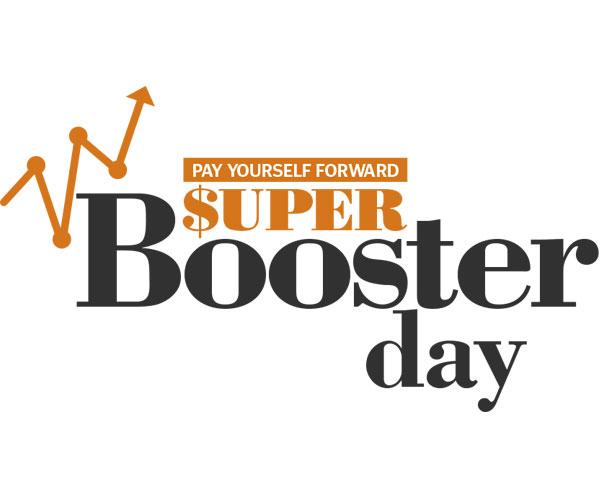Superannuation and how super works can seem like an abstract concept when you’re in your 20s. And quite rightly so! Entry level salaries aren’t exactly impressive; every cent counts and you want that hard-earned money right there in your pocket.
Plus, retirement ’s like a century off, so who cares! Right? Wrong. Because like all boring life admin, the sooner you get on top of it, the bigger the rewards you reap down the track will be.

The two big questions about superannuation in your 20s are invariably: ‘When should I start a super fund? ’, and ‘How do I choose a super fund?‘ And you should definitely act upon these answers.
Trust us, your bank account will thank you later.
When should I start worrying about my superannuation?
In short? Right now. There ain’t no time like the present after all…
Yes, worrying about retirement seems like a gazillion years away but it will seriously benefit future you (and future you will be very happy with present you!).
Frances Easton, executive director at Alman Partners explains the benefits of starting a super early: “A decision you make now could make the difference of you retiring early or working until you are 80. Also, considering your super is going to be invested for around 40 years before you get your hands on it, a difference of 1% or 2% in long-term returns can be huge.”
Make sure YOU choose the best super fund, NOT your employer
Sure, it’s easier to let that little portion of your wages be taken from your bank account automatically each pay day. But shouldn’t you be in control of where that money is going?
“It’s your hard-earned money – take an interest in it now,” advises Claire Mackay, the head of advice at Quantum Financial. “Pick a super fund that works for you, be mindful of the fund’s fees and investment options.”
Shop around and don’t just let your employer choose for you as their chosen super fund might not be the best one for you.

Find out which superannuation has the lowest fees
This is important as the end game could be very different depending on your fund’s fees.
“You should be looking for fees of 1% or less,” says Jonathan Philpot, wealth management partner at HLB Mann Judd Sydney. You might be surprised at the effect fees can have on your balance at retirement. Let’s say you’re 25, earning $50,000 a year and have $20,000 in super and are paying 2%pa in fees. At age 65 you’ll have $195,257. By switching to a lower-cost fund you would have $39,611 more at 65.
That’s some math you need to get behind…

Maintain one super or consolidate your super accounts
You should avoid setting up new super accounts when changing jobs, or if you do set up a new fund transfer your existing balance to the new one.
“Keeping your super in one place can make a significant difference to your balance at retirement due to the benefits of compounding,” says Philpot.
Not only will you pay only one set of fees, there are other advantages, such as a reduction in paperwork (SCORE!), and it also makes it a heck of a lot easier to keep track of.
Don’t forget about your super when you move




Who knows how many places you’ll move to in your 20s. Whether it’s five different houseshares, a different state or even a different continent, you need to keep your fund informed.
Because even if you’re off overseas for a year or two, your super could become inadvertently “lost”.
There are a lot of organisations you need to notify when you move but your super fund should be near the top of that list.
Get the Government super top-up
Give your super a boost by taking advantage of the government co-contribution scheme. For the 2017-18 financial year, if you earn less than $36,813 and make an after-tax contribution to super of $1000, the government will top that up with $500. You’ll get a part payment if you earn between $36,813 and $51,813.
Pay attention to the insurance on your super
Your super fund will automatically give you life and total and permanent disability (TPD) insurance when you join. The premiums come out of your super account, so will lower your balance over time.
This might not be a problem but if you’re young and single with no dependents you’ll need to think about whether you really need the amount of insurance the super fund has nominated for you.
If not, consider reducing it – just don’t forget to increase it if your circumstances change.
Educate yourself on investment
Learn as much as you can about investing. Read books, sign up to newsletters and consider completing a free course at asx.com.au.
You never know, you could have the knack…

(P.S Don’t forget about saving for a deposit!)
Superannuation is incredibly important but you should consider getting onto the property ladder first.
“Balance locking away savings in super versus saving for a home deposit carefully,” says Chris Smith, founder of VISIS Private Wealth.
“However, don’t leave a contribution strategy too late because as you get to a substantial capital value your opportunities begin to increase.”
It’s a balancing act and both things are SUPER (get it?) important… We’ll get our coat.




.jpg)